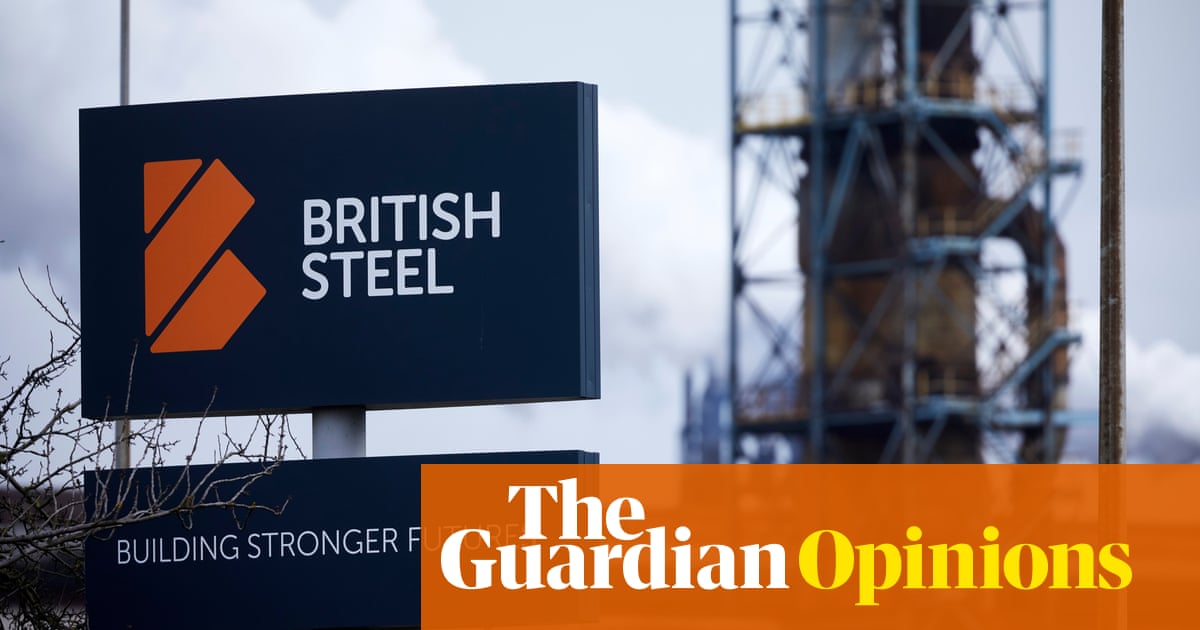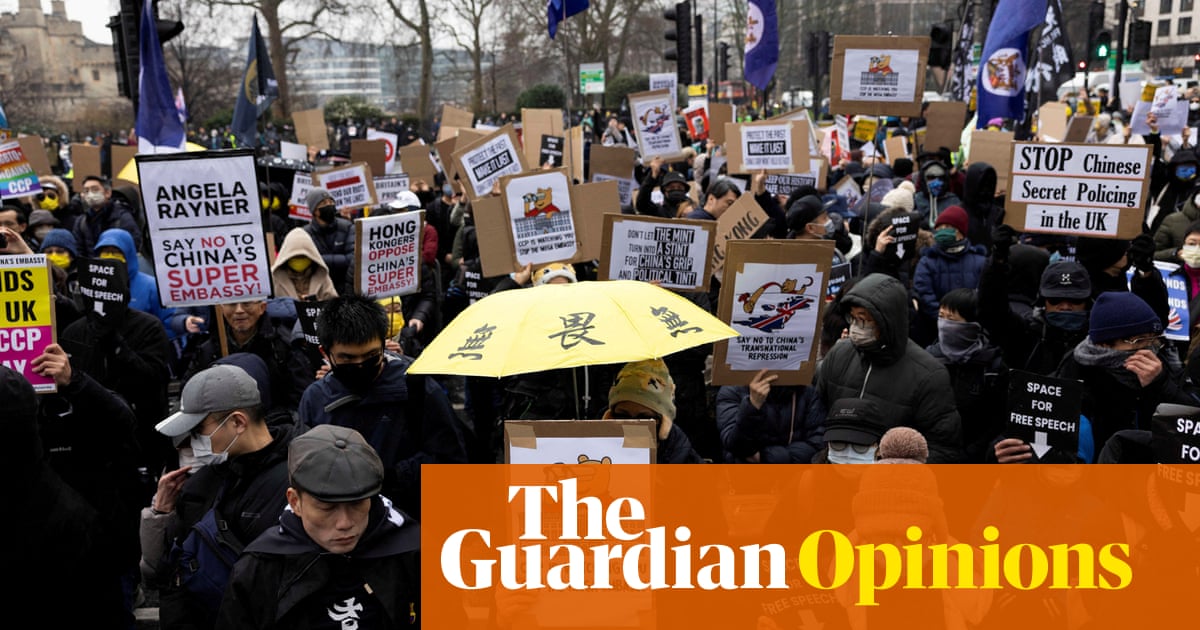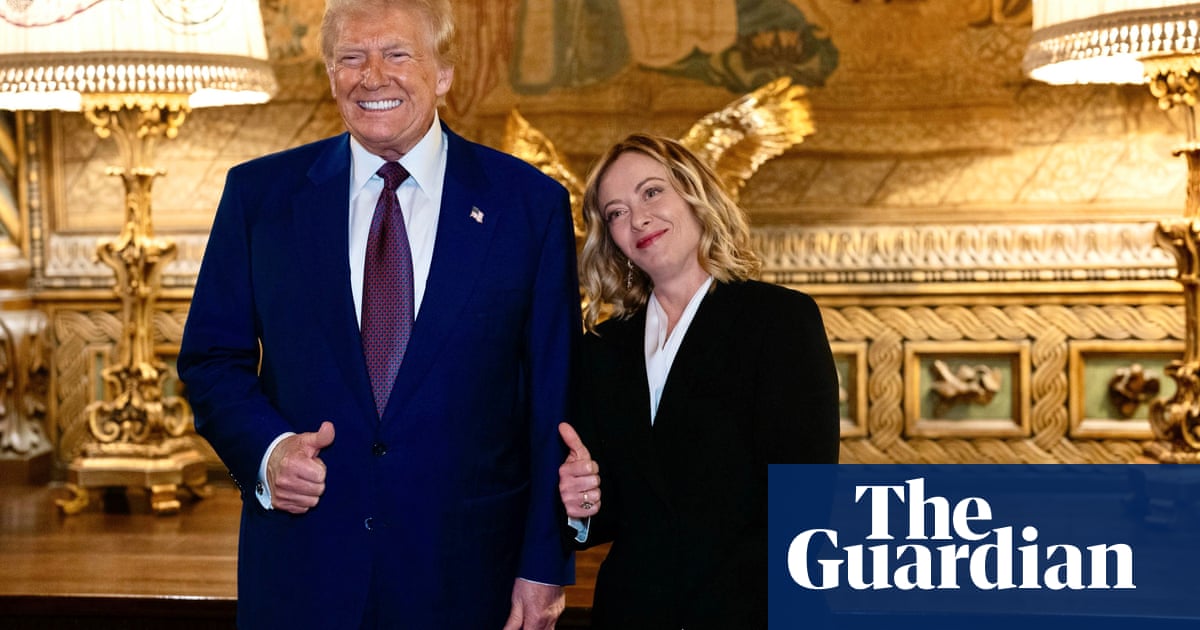European shares bounce; dollar slides
European shares have bounced at the open, with major indices rising by more than 2%.
In London, the FTSE 100 index jumped by 130 points, or 1.6%, to 8,090. The German, French and Italian markets rose by more than 2% in early trading.
The US dollar is on the backfoot again, retreating by 0.8% against a basket of major currencies. The pound has gained by 0.7% against the greenback while the euro is 0.55% ahead.
Yields (or interest rates) on eurozone government bonds are rising, after falling on Friday, as the exclusion of Chinese electronics from steep new US import tariffs eased fears about the impact of US trade policy on the global economy.
Germany’s 10-year yield, the eurozone’s benchmark, rose by 4.5 basis points to 2.57%, after declining by 5.5 bps on Friday.
Key events Show key events only Please turn on JavaScript to use this feature
Sony raises PlayStation 5 price by 25%
Sony is raising the price of its PlayStation 5 console by around 25% in Europe, including the UK, ahead of a likely increase in the United States.
The company announced what it described as a “tough” decision on its PlayStation blog, with Australia and New Zealand also affected, pointing “a backdrop of a challenging economic environment” with “high inflation and fluctuating exchange rates”.
The PS5 will cost €499.99 in Europe and £429.99 in the UK from today. In Australia, the price is going up to AUD $829.95 and in New Zealand, to NZD $859.95.
While the statement does not mention tariffs, Sony manufactures a large chunks of its PS5 consoles in China, which faces US tariffs of 145%.

Charlotte Brumpton-Childs, GMB union national officer, said she is “wholly reassured” that the coking coal bound for the furnaces at Scunthorpe will be “paid for and unloaded over the next couple of days” at Immingham Bulk Terminal as part of efforts to avert the permanent shutdown of Britain’s last primary steelmaking plant.
She told BBC Breakfast:
I spoke to British Steel late yesterday evening and was wholly reassured, actually.
I’ve [been] told that the coke that’s at Immingham Bulk Terminal will be paid for and unloaded over the next couple of days and that government are working at pace to secure the rest of the raw materials that are currently on the ocean.
Parliament passed a one-day bill on Saturday containing emergency powers to gain control of the Scunthorpe site after its Chinese owner, Jingye, declined a government offer of £500m in support to keep the plant running over the next few weeks.
A decision on full nationalisation is expected to be taken in the next fortnight if the plant can continue operation.
A spokesman for the Chinese Embassy in London said, according to the Times:
We are following closely the developments of British Steel involving the Chinese private company. We have urged the British side to act in accordance with the principles of fairness, impartiality and non-discrimination and to make sure the legitimate rights and interests of the Chinese company be protected.
It is an objective fact that British steel companies have generally encountered difficulties in recent years. It is hoped that the British government will actively seek negotiation with the relevant Chinese company to find a solution acceptable to all parties.
Reynolds: Officials on British Steel site 'to keep jobs going and furnaces burning'
The business Secretary, Jonathan Reynolds, has taken decisive action exercising the government’s emergency powers to get the materials needed to keep British Steel alive, the business department said.
The Chinese-owned company is racing to secure raw materials to keep its furnaces burning as the government scrambles to save the Scunthorpe plant from closure, to avoid an uncontrolled cooling, which would make it prohibitively expensive to restart production.
Officials were on site as soon as the new legislation came into force on Saturday, and have been working with British Steel’s management to ensure workers and suppliers can get paid on time, the business department said.
They are working today to get nearby raw materials like coking coal on site to keep the blast furnaces running. This is crucial to the running of the plant because - if they fall below a certain temperature - it risks irreparable damage to the site, with the steel setting and scarring the machinery.
Dozens of businesses, like Tata and Rainham Steel, have rallied to support British Steel by offering managerial support and raw materials.
Reynolds said:
When I said steelmaking has a future in the UK, I meant it. That’s why we’ve passed these new powers to save British Steel at Scunthorpe, and that’s why my team are already hard at work on the ground to keep jobs going and furnaces burning.
Steel is vital for our national security and our ambitious plans for the housing, infrastructure and manufacturing sectors in the UK. We will set out a long-term plan to co-invest with the private sector to ensure steel in the UK has a bright and sustainable future.

Matt Britzman, senior equity analyst at Hargreaves Lansdown, said:
Just when it seemed the tariff chaos couldn’t get any worse, tech investors have spent the weekend scrambling to make sense of a whirlwind of confusing - and at times contradictory - messages coming out of the White House. Despite the drama, European markets have taken an easing stance on US tech components as a positive in a broad-based rally this morning, with the FTSE 100 up 1.5% in early trading.
This time, it’s chips, smartphones, and other tech components taking centre stage. While there were early signs on Friday night that some broad exemptions might be in play, it turns out tariffs are still very much on the table. But here’s the twist: despite the messy rollout, what’s caught investors’ attention is the news that these products won’t be hit with the harsh China-specific tariffs. Instead, it looks like an existing 20% tariff will be applied - at least for now - while further decisions around how best to deal with this bucket of products go on in the background.
The net effect is positive for tech, especially for giants like Apple, which could’ve seen their entire pricing strategy thrown into disarray under the proposed 145% China tariffs. Instead, this reprieve, and news that further tariffs will be a couple of months away, gives Apple time to build up its US inventory to cover the current iPhone sales cycle without needing knee-jerk price hikes. Decisions on pricing can then be made alongside the launch of its latest handset in September. It’s still a bit chaotic, but this is a better outcome for the tech sector than when we closed on Friday and, as a result, US futures are trading higher - even as volatility spikes yet again.
One asset shining brightly amid the chaos is gold. It’s been on a remarkable upward trend this year, with only a few minor stumbles along the way. This weekend’s tariff antics have only amplified its safe-haven appeal, pushing prices to yet another all-time high as investors search for assets uncorrelated to White House drama.
European shares bounce; dollar slides
European shares have bounced at the open, with major indices rising by more than 2%.
In London, the FTSE 100 index jumped by 130 points, or 1.6%, to 8,090. The German, French and Italian markets rose by more than 2% in early trading.
The US dollar is on the backfoot again, retreating by 0.8% against a basket of major currencies. The pound has gained by 0.7% against the greenback while the euro is 0.55% ahead.
Yields (or interest rates) on eurozone government bonds are rising, after falling on Friday, as the exclusion of Chinese electronics from steep new US import tariffs eased fears about the impact of US trade policy on the global economy.
Germany’s 10-year yield, the eurozone’s benchmark, rose by 4.5 basis points to 2.57%, after declining by 5.5 bps on Friday.
Chinese president Xi Jinping has warned there will be “no winners” in a trade war and that protectionism “leads nowhere”, as he began a three-nation trip to south-east Asia starting in Vietnam on Monday.
Xi’s tour, which began in Hanoi, also includes rare visits to Malaysia and Cambodia and will seek to strengthen ties with China’s closest neighbours amid a trade war that has sent shockwaves through global markets.
Writing in an article published in Vietnam’s Nhan Dan newspaper on Monday, Xi urged Vietnam to “resolutely safeguard the multilateral trading system, stable global industrial and supply chains, and open and cooperative international environment”, Beijing’s Xinhua news agency said.
He added that a “trade war and tariff war will produce no winner, and protectionism will lead nowhere”.
He called for stronger ties with Vietnam on trade and supply chains, and stronger ties with Hanoi on artificial intelligence and the green economy.
The visit, which had been planned for weeks, comes as Beijing faces 145% duties on its exports to the United States, while Vietnam is trying to negotiate a reduction of threatened US tariffs of 46% that would apply in July after a global moratorium expires.

China exports jump in March ahead of latest tariffs
China’s exports rose sharply last month as factories rushed out shipments before the latest US tariffs took effect, and because of the timing of the lunar new year holiday.
Exports climbed by 12.4% year-on-year in March, a five-month high, and ahead of economists’ expectations of 4.4% growth. In February, they fell by 3%. The rebound was largely related to the timing of the lunar new year, as the holiday fell in early February this year.
However, economists warned that this will soon be eclipsed by the escalating trade war between the US and China.
Julian Evans-Pritchard, head of China economics at Capital Economics, said:
Export growth accelerated in March, as manufacturers rushed to ship goods to the US ahead of ‘Liberation Day’. But shipments are set to drop back over the coming months and quarters.
We think it could be years before Chinese exports regain current levels.
By destination, exports were supported by a sharp recovery to the G7, especially the US, where shipments rose by 9.1% year-on-year in March, compared to a fall of 9.8% in February. Exports to the UK jumped by 16.3% from a 13.9% drop, while shipments to the EU rebounded to 10.3% following a 11.5% decline in February. Exports to Africa jumped by 37% and shipments to ASEAN countries rose by 11.6% following February’s 8.8% rise (shipments to the region didn’t dip during the festive period as they did elsewhere).
Kelvin Lam, senior China+ economist at Pantheon Macroeconomics, said:
On trade policy, president Trump exempted some electronics imports from tariffs late Friday, later clarifying that it was only a temporary reprieve, with new sector-specific tariffs to be imposed on semiconductors and consumer electronics in the “not too distant future.”
Notably, the suspension does not apply to the existing 20% tariff imposed on China over its role in the fentanyl trade. In any case, the temporary relief for the electronics sector may offer some breathing room for Chinese exporters before the new tariffs come into effect. We expect more clarity on the new tariff rates once the Section 232 Investigation concludes — with a likely range of 10% to 125%, according to US Commerce Secretary Howard Lutnick.
Introduction: Asian markets rise on signs of Trump tariff retreat; British Steel races to keep furnaces burning
Asian shares have risen despite a warning from US officials that an exemption of smartphones, laptops and other electronic products from import tariffs on China would be short-lived. Donald Trump has warned that no one is ‘getting off the hook’, while a Chinese official pronounced that ‘the sky won’t fall’.
Japan’s Nikkei gained 1.4% while Hong Kong’s Hang Seng rose by 2% and the Shanghai and Shenzhen exchanges climbed by 0.7% and 0.4% respectively.
The gains have brought some respite to markets after days of heavy selling when trillions of dollars were wiped off global stock markets, as a wave of US tariffs sent shockwaves around the world.
A Chinese customs official said “the sky won’t fall” for the country’s exports, despite the darkening outlook, according to the state news agency Xinhua, as Beijing released data showing a jump in China’s exports in March.
In recent years, China has made steady progress in diversifying its trade markets and deepening industrial and supply chain cooperation with partners around the world, according to Lyu Daliang, an official at the General Administration of Customs.
These efforts have not only supported our partners’ development but also enhanced our own resilience.
US stocks are also expected to stage a recovery later today, after the US president excluded imports of smartphones and laptops from his tariff regime late on Friday night. However, he said in a social media post on Sunday:
There was no Tariff ‘exception’. These products are subject to the existing 20% Fentanyl Tariffs, and they are just moving to a different Tariff ‘bucket.’
In the post on his Truth Social platform, Trump promised to launch a national security trade investigation into the semiconductor sector and the “whole electronics supply chain”.
Trump told reporters aboard Air Force One, as he travelled back to Washington from his estate in West Palm Beach, that tariffs on semiconductors would be announced this week and a decision on phones made “soon”.
Gold has hit a new record high, of $3,245.42 an ounce, seen as a safe-haven in times of turbulence. It is now traded at $3,232 an ounce, down 0.1% on the day.
Meanwhile in the UK, British Steel is to deploy emergency measures in a race against time to save the blast furnaces at Scunthorpe, while the business secretary, Jonathan Reynolds, declined to guarantee the plant could get what it needed in time.
The company is understood to be looking at offers of help from more than a dozen businesses to obtain materials such as iron ore and coking coal, potentially allowing it to avoid the temporary shutdown of one of the two furnaces.
On Saturday, parliament passed a one-day bill containing emergency powers to gain control of the Scunthorpe site after its Chinese owner, Jingye, declined government support to keep the plant running over the next few weeks. British Steel’s UK management team is now scrambling to buy the materials, with help from government officials.

.png) 1 day ago
8
1 day ago
8













































